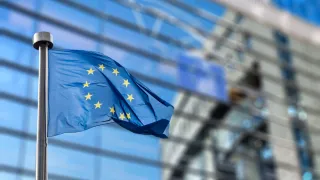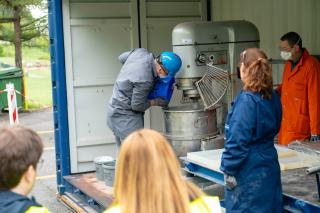Unlocking Europe's Mining Potential: By Sinead Kaufman, Chief Executive Minerals, Rio Tinto
Unlocking Europe's Mining Potential: By Sinead Kaufman, Chief Executive Minerals, Rio Tinto

Next week the Raw Materials Summit will be hosted in Brussels, the first since approval of the EU’s landmark Critical Raw Materials Act (CRMA) in March. As part of this summit, I will be speaking on a panel discussing how the focus now shifts from new policy to action. One of Europe’s primary challenges is attracting sufficient investment to meet expected demand in an increasingly competitive international marketplace.
Low rates of investment in the global mining sector could put the energy transition at potential risk. And yet, the supply gap is widening for critical metals and minerals the world needs to decarbonise. Rio Tinto’s chairman recently said that this supply gap is “humungous” yet investment levels are “hundreds of billions of dollars below what we need.”
The numbers show the scale of the challenge. The world is on the cusp of a supply deficit, with the need to go green potentially requiring up to 500% more critical raw materials by 2050, according to the World Bank. That’s equivalent to 3 billion tonnes of new base materials for electric vehicles, renewable energy installations and storage solutions, among other renewable technology. The deficit is not just on upstream supply but also on downstream industries and their respective abilities to deliver.
Europe is particularly vulnerable. Its dependence on importing more than 75% of what it requires appears increasingly unsustainable, leaving the economy vulnerable. The European Commission estimated that the EU will require 18 times more lithium and five times more cobalt in 2030 than in 2020. To meet its newly published 2040 climate targets, Europe will need to recycle more, import more and extract more of its own resources. All three are needed to ensure a resilient supply.
EU policymakers are aware of the potential impact; hence the relative fast-tracking of the CRMA. They are targeting 10% of Europe’s 2030 mined needs and 40% of processed needs to come from domestic sources, while supplying 25% from recycling.
All this is going to require significant new investment. Eurometaux, the European non-ferrous metals producers and recyclers association, announced in April that meeting these production goals for strategic raw materials will require opening at least 10 new mines, 15 processing plants and 15 recycling plants.
Mining is a long-term commitment. A major project can take up to 20 years before operations commence, potentially requiring billions in capital expenditure and investment. From initial exploration, through licensing and permitting processes, public consultation and securing the social license to operate, on to construction and operational costs, it’s a time-consuming, expensive process. And it’s not just financial and physical investment Europe needs. It must also build its available skills and expertise, investing in the people who will help run a new, modern high-tech industry.
For Europe to be competitive and attract the right investors, there is urgent need to bridge the gap between technical and commercial challenges. Europe must take the long-term view on its financing agreements to provide an attractive proposition, focused on good governance, infrastructure and de-risking. A European Critical Minerals Fund would be an important and helpful step in fostering sustained investment, as would clear, binding investment criteria and guidelines.
All of this must be done to the highest standards, essential to securing and maintaining a social license to operate. Standards governing and regulating European mining should be uniform and consistent. Communities, companies and all stakeholders need clarity on what the standards are so there can be productive consultation and engagement. This will also enable appropriate review and updating of standards as needed over time.
In sum, there needs to be commitment and action. A bold new policy framework is welcome but alone will not be enough if Europe wants to meet its decarbonisation objectives. A diverse range of stakeholders must work closely to develop a viable roadmap that builds consensus and meets commercial expectations, all while helping to deliver a more sustainable future.


